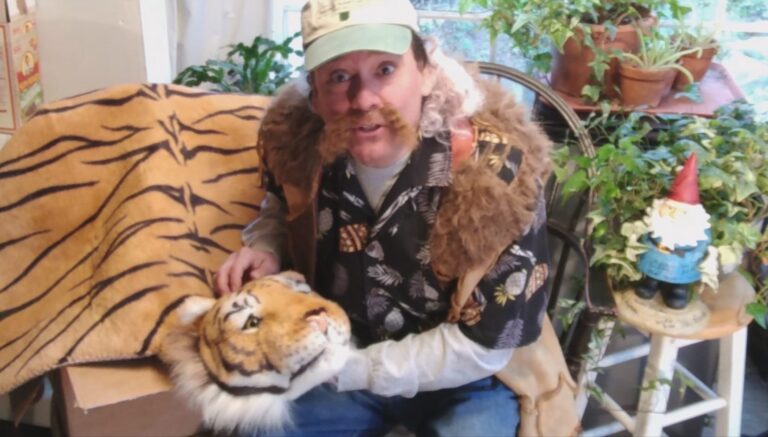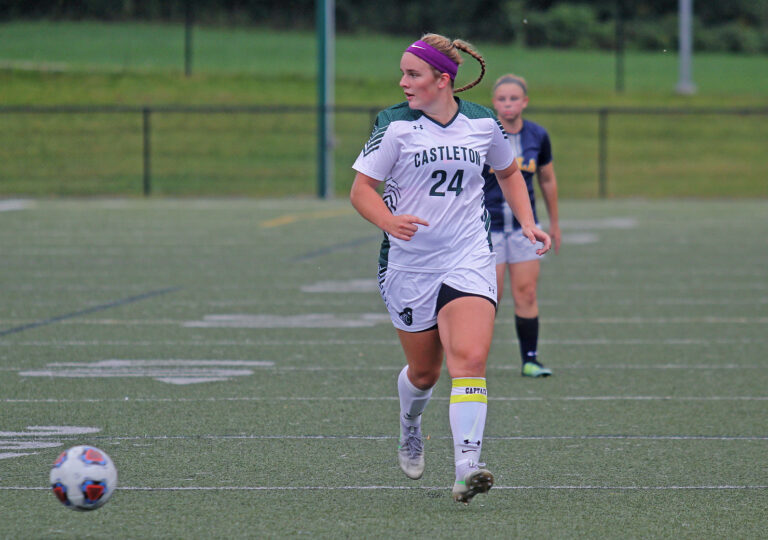Wallingford residents stepping up to help others through Covid-19 crisis
This story is one of several that have been written by professor Dave Blow’s journalism classes that will be published in the Spartan addressing the ways that COIVD-19 is affecting students’ hometown communities.
On any given day in Wallingford, 58-year-old lawyer Jennifer Hoult might be found at the library, shopping in the local grocery store or blissfully sewing or gardening at her home.
With COVID-19, that’s not the case anymore.
Now the local stores are over-shopped, leaving people unable to find basic necessities. The once bustling library is like a ghost town, only open a few hours a week for drug deal-style book drop-offs. The garden is a plan to feed the town in the future during this mysterious lock-down.
So, Hoult these days has been putting her own health on the line shopping for compromised neighbors since the COVID-19 pandemic began. The former prosecutor, former artificial intelligence software engineer, and current professional harp player, is one of a community of people banding together to take care of each other in this time of crisis.
“I started following COVID-19 on March first, the day of the first death in Kirkland, Washington,” Hoult explained.
She has family in Kirkland and was supposed to be travelling there over the next few weeks.
Having a family of scientists, Hoult was able to use that background, as well as her own professional experience, to predict what would happen in the near future. She paid attention to the signs, and made the choice to educate where she could.
She has been active in correcting online inaccuracies, as well as encouraging people to learn from proven scientific resources such as the World Health Organization and Centers for Disease Control.
“History is a great teacher,” Hoult said, adding that much of what she learned about the cultural impact of a pandemic like this was from studying the 1918 Spanish flu. She also researched victory gardens, which were used to supply food to towns during WWI and WWII, so that commonly purchased food could be used for the troops.
Hoult explains a modern victory garden is needed for “victory against this illness and the financial crisis that is going to be with us for a while.”
Another way Hoult is supporting others is by sewing facemasks to donate to Rutland Regional Medical Center.
Eileen Shannon, of Meacham Street in Wallingford, has been keeping the town updated on facemask donation protocol. With a wish for “happy sewing!” Shannon publishes on Front Porch Forum any change in preferred fabric, where to get kits, and more.
Community members who are no longer able to make the masks are still donating to the cause. Wallingford resident Jeri Harris offered a free sewing machine with attachments to anyone who could use it to help.
Why is Hoult so prepared? How is she able to keep a level head during this turbulent phase of life? Because she is no newcomer to tragedy.
On September 11, 2001, Hoult had breakfast plans in the World Trade Center. By a stroke of luck or fate, the friend she had plans with decided to change the venue. Because of this change, Hoult’s life was spared. Although the country wanted revenge, Hoult saw something else in New York. She noted in the aftermath the 9/11 attacks, the New York community came together.
“In times of crisis, good things also happen,” Hoult said.
She sees this global pandemic as a time for humans to come together.
“We’ve never, as a species, been interconnected at this level,” she said.
She went on to say that communities and families are getting together as they never have before. Hoult also commented on the misnomer of “social distancing.”
“It should be physically distancing, not social distancing. Humans need social interaction,” Hoult said with conviction.
While we may need to keep our distance to flatten the curve, Hoult points out there’s no need to deprive ourselves of culture.
“There is no need to lack things to do and learn, or to be deprived of entertainment, comfort, and illumination,” she said while offering her services to the community.
While not everyone is able to help with shopping, sewing, gardening, or even able to leave their house due to high risk factors, Hoult points out there is always a way to help.
“People are looking for a way to volunteer,” she said, adding that they just need to ask.
Julie Sharon, the Wallingford town clerk and treasurer, proved this when she asked for a vacuum for the Town Hall on Front Porch Forum. By simply asking, the community was able to answer. Hoult happened to have an old vacuum she was willing to donate, saving Sharon from having to shop in a time when it’s not very easy.
Hoult shared a powerful message about fear, saying to pay attention, but not necessarily be afraid of our current situation.
“To say I’m scared is the wrong word. I’m mindful,” she said.
She said most people will be infected, and while most will live, we just need to be mindful in order to protect those who need it.
“The thing about the human condition is any of us could die at any moment,” Hoult continued. “We can’t think about it too much, it’s too scary.”
She then spoke about nurses, firefighters, and anyone else who is on the front lines of a variety of crises.
“They are trained to fight their fear,” she said, emphasizing her point that society will get through this, as long as we stick together.
“Being fearful is its own kind of enemy,” Hoult proclaimed.








